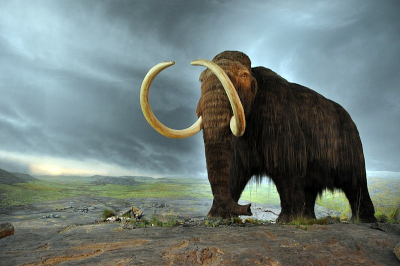NGSS Standards
DCIs (Disciplinary Core Ideas)
HS-LS4.B: Natural Selection
- B1. Natural selection occurs only if there is both (1) variation in the genetic information between organisms in a population and (2) variation in the expression of that genetic information—that is, trait variation—that leads to differences in performance among individuals.
- B2. The traits that positively affect survival are more likely to be reproduced, and thus are more common in the population.
HS-LS4.C: Adaptation
- C1. Evolution is a consequence of the interaction of four factors: (1) the potential for a species to increase in number, (2) the genetic variation of individuals in a species due to mutation and sexual reproduction, (3) competition for an environment’s limited supply of the resources that individuals need in order to survive and reproduce, and (4) the ensuing proliferation of those organisms that are better able to survive and reproduce in that environment.
- C2. Natural selection leads to adaptation, that is, to a population dominated by organisms that are anatomically, behaviorally, and physiologically well suited to survive and reproduce in a specific environment. That is, the differential survival and reproduction of organisms in a population that have an advantageous heritable trait leads to an increase in the proportion of individuals in future generations that have the trait and to a decrease in the proportion of individuals that do not.
- C3. Adaptation also means that the distribution of traits in a population can change when conditions change.
- C4. Changes in the physical environment, whether naturally occurring or human induced, have thus contributed to the expansion of some species, the emergence of new distinct species as populations diverge under different conditions, and the decline–and sometimes the extinction–of some species.
- C5. Species become extinct because they can no longer survive and reproduce in their altered environment. If members cannot adjust to change that is too fast or drastic, the opportunity for the species’ evolution is lost.
LS4.D: Biodiversity and Humans
- D1. Biodiversity is increased by the formation of new species (speciation) and decreased by the loss of species (extinction).
- D2.Humans depend on the living world for the resources and other benefits provided by biodiversity. But human activity is also having adverse impacts on biodiversity through overpopulation, overexploitation, habitat destruction, pollution, introduction of invasive species, and climate change. Thus sustaining biodiversity so that ecosystem functioning and productivity are maintained is essential to supporting and enhancing life on Earth. Sustaining biodiversity also aids humanity by preserving landscapes of recreational or inspirational value.
Performance Expectations
- HS-LS4-2. Construct an explanation based on evidence that the process of evolution primarily results from four factors: (1) the potential for a species to increase in number, (2) the heritable genetic variation of individuals in a species due to mutation and sexual reproduction, (3) competition for limited resources, and (4) the proliferation of those organisms that are better able to survive and reproduce in the environment.
- HS-LS4-4. Construct an explanation based on evidence for how natural selection leads to adaptation of populations.
- HS-LS4-5. Evaluate the evidence supporting claims that changes in environmental conditions may result in (1) increases in the number of individuals of some species, (2) the emergence of new species over time, and (3) the extinction of other species.
- HS-LS4-6. Create or revise a simulation to test a solution to mitigate adverse impacts of human activity on biodiversity.
Other Relevant NGSS References
- NGSS Appendix F (pdf): Science and Engineering Practices in the NGSS
- NGSS Appendix G (pdf): Crosscutting Concepts
- NGSS Appendix H (pdf): Understanding the Scientific Enterprise: The Nature of Science in the Next Generation Science Standards
- NGSS Appendix J (pdf): Science, Technology, Society and the Environment
This is a beta version of Lesson Set Five.
